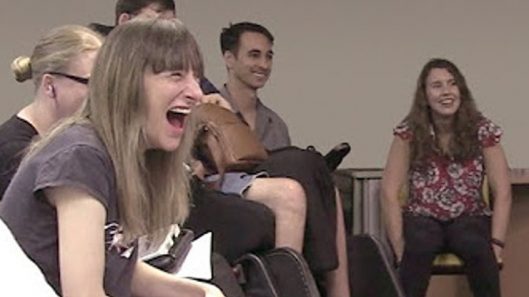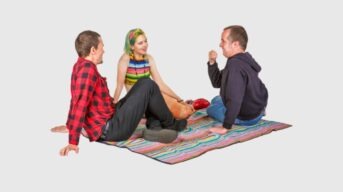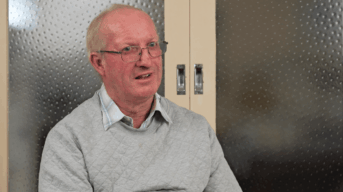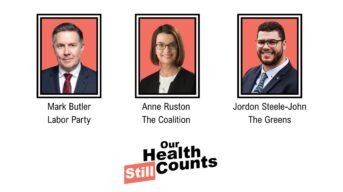What is peer support?
“People from different disabilities coming together to form a singular voice about issues that affect the entire disabled community.”
Peers are people with a common interest or lived experience.
Peers can support each other by sharing advice and solving problems together.
Peer support is a powerful way to make changes in your life and in the community
View our stories about peer support.
Transcript
Dave: With peer support, there’s something incredibly powerful about people from different disabilities coming together to form a singular voice about issues that affect the entire disabled community. And that’s why, you know, one of the aspects of peer support is assisting each other in that advocacy going forward, so, you know it’s talking about those issues in those groups as well. It’s…you know, you don’t have to have to sit there and be just passive to what’s happening around you.
Voice: Shu speaking.
Shu: We can learn from each other’s experience, we can give each other information, we can go and tell people my experience, and they can tell their experience to me. We need to empower ourselves and do lots of stuff and to be able to bring the message out to share with other people.
Voice: George speaking.
George: For me peer support is an opportunity for people to grow strength together. There’s this perception that people with disabilities don’t know what to say or don’t know how to ask and families get stuck in that because, they see their own lives and their challenges with their own children and these children are in their 20s, some of them, in their 30s, and they’re not children, they’re adults. And for them to be able to come out, free of their parents, into a peer group, it would give them the opportunity to become independent, learn to make a decision. We need to take risks, life is about taking risks.
Voice: Leigh speaking besides Tania.
Leigh: We are sharing our life to their life and really using their life as amazing as they can be because every person is an expert. Every person [may not?] has a disability but every person has blood and skin and they’re human beings like anyone else in the world.
Voice: Tania speaking besides Leigh.
Tania: They start to bloom. They start to grow. They start to realise they have abilities, they have to power to take control of their lives, and start living it, and living it the way they choose. If you don’t share what you know, then how is anyone else going to get it?
Voice: Ros speaking.
Ros: I get it so much because I get information, I get to meet new people, I get to be part of a conversation. I get to learn more stuff for my own toolbox that I have.
Voice: Peer support course.
[Multiple voices]
Voice: Christine signing, voiced by an AUSLAN interpreter
Christine: I had never been really involved in anything like it before. I had never spoken to people with a range of disabilities before. I still felt a little bit tearful, if you like, but now that I’m actually involved in CDAH, I get it now. Sometimes, it’s as simple as having a conversation about what it is they like to do, or where they’d like to go, or what they’d like to learn. What their fears are, and trying to sort of break away from those things rather than focusing on the negative parts of their story, finding the skills, finding something that allows them to connect to their community.
Voice: George.
George: A peer group is more than just people talking about an issue. It’s about sharing stories, it’s about supporting each other. It takes everything in and brings it into a package where we’re actually engaging in a relationship with each other. And we then take that respect on, so we then act that way. So it kind of is a stepping stone to becoming more independent and becoming a bit more focused on your life.



 1800 424 065
1800 424 065 


















